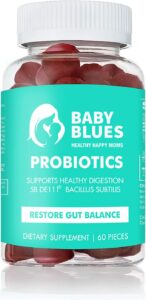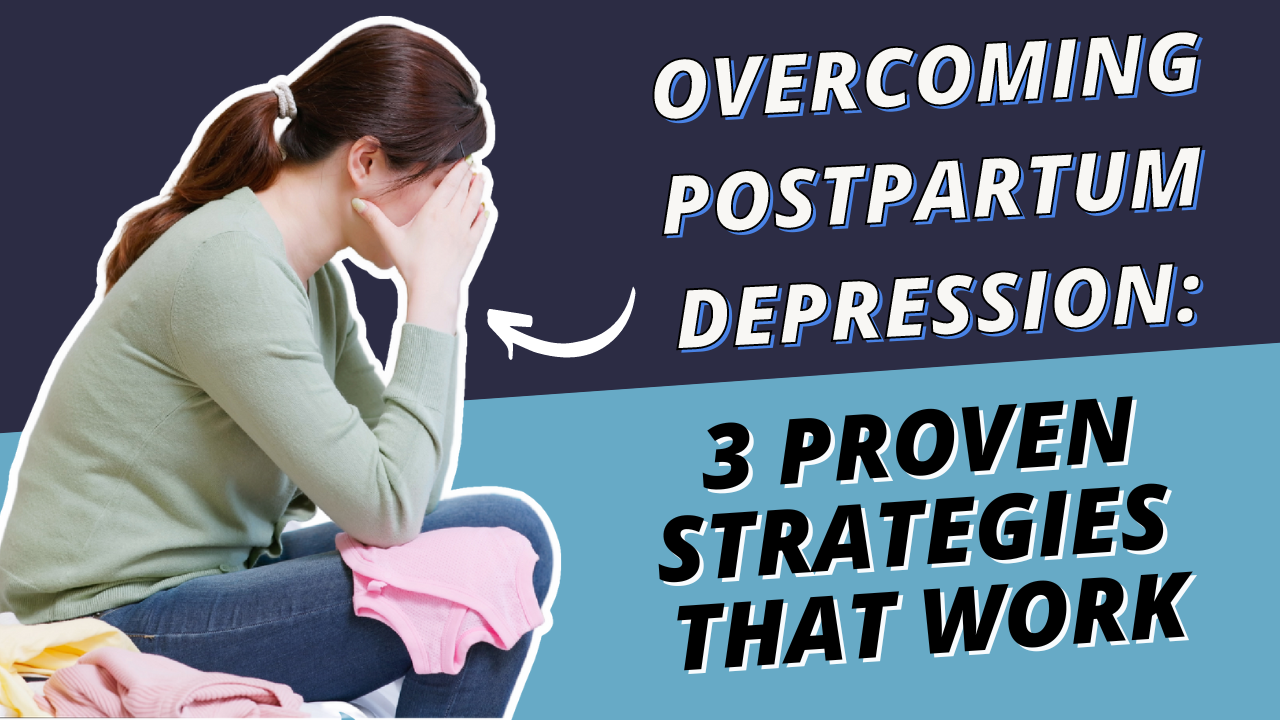If you are a mom who is struggling with postpartum depression, you are not alone. Postpartum depression is the most common complication of childbirth, affecting 1 in 7 women. Symptoms can include sadness, anxiety, difficulty sleeping, eating problems and fatigue. If left untreated, postpartum depression can last for months or even years. In this blog post, we will discuss 3 proven strategies that have helped me overcome postpartum depression.
3 Strategies to Help With Postpartum Depression
1. Probiotics
The gut-brain connection is a growing area of research that is showing a link between gut health and mental health. There is evidence that suggests that the gut microbiome (the trillions of bacteria that live in the gut) can play a role in mood and behavior. Studies have shown that when the gut microbiome is imbalanced, it can lead to inflammation and mood disorders like anxiety and depression.
One way to help support a healthy gut microbiome is by taking probiotics. Probiotics are beneficial bacteria that can help restore balance to the gut microbiome. They are available in supplement form as well as in fermented foods like yogurt, kombucha and sauerkraut. I found that taking a probiotic supplement every day helped to improve my mood and energy levels.
I love Baby Blues Gummy Probiotic. This organic probiotic provides the support mentioned above and contains DE111 (Bacillus Subtilis), a clinically tested probiotic strain that is effective in improving gut health, protecting the body from pathogens, and boosting immune activity.


2. Green Smoothies
Another thing that helped me during my recovery was drinking green smoothies. Green smoothies are a great way to get in a lot of nutrients in a short amount of time. They are made with leafy greens like spinach or kale, fruit, and water or almond milk. I found that drinking green smoothies every day helped to improve my mood and energy levels.
Green smoothies are a great option and what we recommend replacing your breakfast with. You can easily make your own simple green smoothie by blending spinach, banana, frozen blueberries, avocado and water or almond milk.
To help keep yourself full longer, I recommend adding protein to your smoothie. It also adds a lot of flavor and covers up that “greens” taste. I love Baby Booster’s protein, because it also has additional nutrients needed for moms-to-be and postpartum moms. My favorite is their Salted Caramel, but they also have Tahitian Vanilla, Chocolate Mocha, and Strawberry.
Related Article: 3 Best Tips to Tackle Postpartum Hair Loss
3. Self-Care and Yoga
One of the best things you can do to take care of yourself when you are struggling with postpartum depression is to practice self-care. This means taking time for yourself each day to do things that you enjoy and that make you feel good. This might be taking a bath, reading your favorite book, going for a walk or spending time with friends and family. Taking some time for yourself each day can help improve your mood and energy levels.
I also found that yoga was helpful in managing my postpartum depression. Yoga is a form of exercise that combines breath work and movement. It is a great way to relieve stress and tension in the body. I started doing yoga at home a few times a week and found that it helped to improve my mood and energy levels.
There are many different types of yoga, so find one that you enjoy and stick with it. If you don’t have time to go to a studio, there are many great yoga videos available online. I love Yoga With Adriene’s YouTube channel.
Full Disclaimer
If you are struggling with postpartum depression, it is important to seek professional help. Postpartum depression is a serious condition that can have lasting effects on your health and well-being if left untreated. I highly recommend seeking out therapy or counseling from a licensed mental health professional. This was one of the most helpful things I did during my journey to recovery. I am not medically licensed to treat postpartum depression nor is this medical advice. This is just what worked for me.
In addition to professional help, there are several things you can do at home to help manage your symptoms and start feeling better. One of the most important things you can do is to build a support system of family and friends who can offer emotional support and practical assistance when needed.
To summarize, make sure you are taking care of yourself physically by taking a probiotic, eating healthy meals (replace your breakfast with a green smoothie), exercising, getting enough sleep, and seeking the help of family, friends, and professionals if needed.
